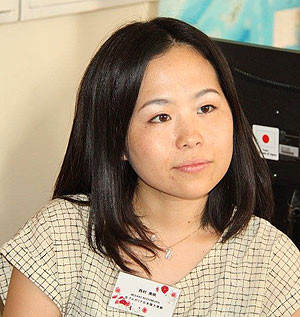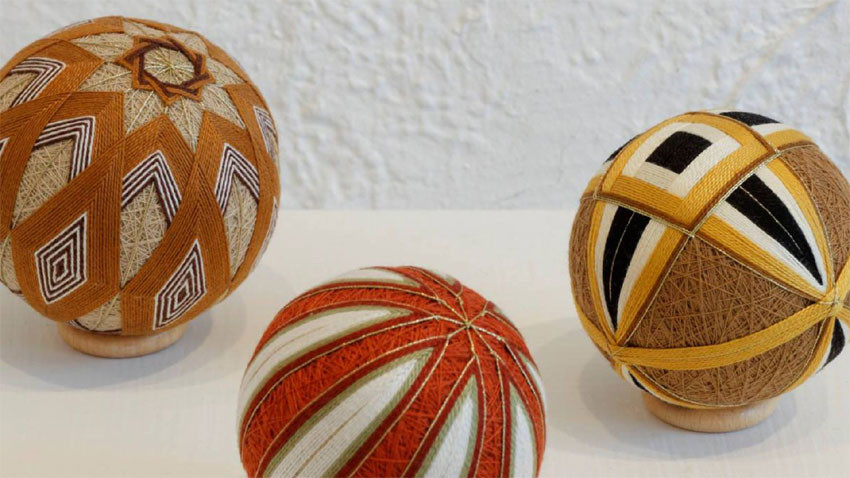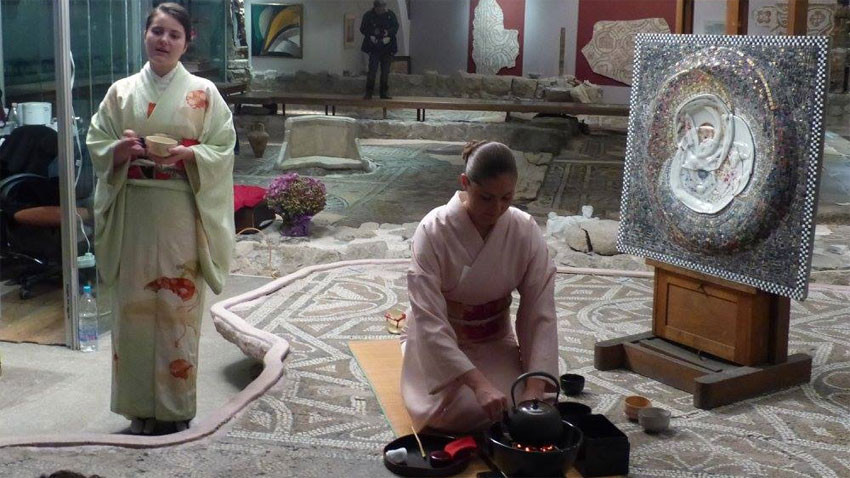If you have not visited one of the events part of the program of the 29-th edition of Days of Japanese Culture in Bulgaria yet, you can do this by the end of November. The Aniventure Comic Con festival includes exhibitions and workshops dedicated to traditional Japanese arts such as temari, kiri-e and ikebana are just some of the events that have enriched cultural life in Bulgaria. The audience would surely remember Japanese opera "Ogi no Mato” on the stage of the State Opera in the city of Stara Zagora.
 We learned more details from Misaki Nishimura, an attaché at the Cultural Department of the Embassy of Japan in Bulgaria:
We learned more details from Misaki Nishimura, an attaché at the Cultural Department of the Embassy of Japan in Bulgaria:
"Maestro Shungo Moriyama is a permanent guest on stage of the Sofia Philharmonic Orchestra, but he has active creative contacts with the opera in Stara Zagora. ‘Ogi no Mato’ has first been placed on Bulgarian stage under his conducting. The opera is based on medieval military epic ‘Heike Monogatari’, which focuses on universal human topics. Composer Kumiko Tanaka also attended the show. In her music she combines modern with traditional Japanese sound."
For the sixth time the Children's Choir of BNR will participate in the Days of Japanese Culture in Bulgaria. The concert will take place on October 18 in the Aula of the Sofia University under the baton of Maestro Venecia Karamanova. The ensemble has been awarded an honorary diploma for outstanding contribution to cultural ties, mutual understanding and friendship between Japan and Bulgaria.

The program of the Days of Japanese Culture includes events such as the concert of SHAMIPIA on November 6 and the classical concert for violin, cello and piano performed by the Asakawa family and Yusuke Hosaka, a student of piano in the class of Professor Zheni Zaharieva on November 23.
Because of her love for the Country of the Rising Sun, a Bulgarian woman has turned to the ancient art of Temari, which combines geometry and embroidery. It is the creation of decorative balls, which are presented as a gift on official occasions. In modern times, Temari craftsmen are rarely found, even in Japan. Rali Doneva-Koeva is a certified member of the Japanese Temari Association, and her works can be seen at the Architects’ Home in Varna in the period October 30 to November 12.

In the first days of November (01-07.11) in the San Stefano Gallery, the exhibition "Tea - Bridge between Art and Nature" can be seen, too. The event will also include accompanying lectures and presentations. Misaki Nishimura told us more about the principles of traditional tea ceremony:
"Calligraphy scrolls are an important element of the Japanese tea room layout. They bring the message of the hosts to their guests. The tea room is something like a sacral space in which one is called to shake off cares of everyday life and purify their mind. Typically, the entrance to the traditional tea rooms is so low that one has to come in almost crawling. The idea is for participants in the ceremony to be humble. In the past, the samurai, even the shogun himself, left their weapons at the entrance to demonstrate equality and respect for their neighbor. Today, one enters the tea room free of heavy makeup and jewelry. The basic principles of the ceremony are harmony, respect, purity and rest. "

Next year, the 110thanniversary since the establishment of official bilateral contacts between Japan and Bulgaria will be marked. Various aspects of Bulgarian culture are familiar to the Japanese people:
"When Japanese hear about Bulgaria, many people first think of yogurt and various varieties of roses,” Ms. Nishimura says. “In addition, your country is famous in Japan with the achievements of Sumo wrestler Kaloyan Mahlianov - Kotoosho and Daniel Ivanov - Aoyama. Undoubtedly, authentic Bulgarian folklore songs and dances, as well as the opera art of Bulgaria are very popular in Japan. Currently, the Sofia Opera and Ballet is on tour in Japan and they have once again received extremely high assessment for their art."
Misaki Nisimura has been in Bulgaria for two years now and before that she studied Bulgarian in Tokyo. What is the thing that made her discover her professional career at the other end of the globe?
"As a young trainee at the Japanese Foreign Ministry, I had the opportunity to choose between different countries. I chose to be a diplomat to Bulgaria because the region of Eastern Europe and especially the Balkans has always attracted me with its ancient culture and history. Bulgaria was my first choice and I am very happy that it has come true."
Author: Alexander Markov
Photos: @DaysJapaneseCultureA young Bulgarian artist decided to leave this world in the middle of the past century in order to preserve his incorruptibility, even though he was defeated by the system on a purely physical level. Currently, in the gallery of the..
Musical, culinary, folklore events… the event program in Bulgaria is saturated, so much so that experts are already talking about how the alarmingly growing number of new festivals should be limited. "A clear strategy is needed: which existing..
Bulgarian society knows very little about the Bulgarian emigrants to Argentina. The curious story of the path of our compatriots to the South American country and the threads by which they are connected to their ethnic roots thousands..

+359 2 9336 661
